LAHAINA, Hawaii — It's a sunny, breezy morning in Maui and 60-year-old Danilo Andres is standing in his house — a big open kitchen on the ground floor with a grill and a stove. Large pots hanging from the fence. "This is my big place, you know, all my family live here," he says.
Staring out from his second-floor deck, it's hard to fathom the randomness of the wind-fueled fire on Aug. 8. Everything around his home burned, to the right, on the front, on the left, and in the back, but somehow the fire jumped his homes and a surrounding cluster. "It's amazing," Andres says, still in disbelief.
Last week, officials in Maui ended the search-and-rescue operation. More than 380 people are still missing, and 115 are confirmed to have died. Nearly a month after the wildfire destroyed much of downtown Lahaina, some — like Andres — are returning to their homes despite official warnings it may not be safe.

Aside from the lack of water and electricity, there's damage to the roof. Andres doesn't know the extent of soil contamination on his property or if there's structural damage to the walls.
Andres lost his job as a hotel driver after the fire, as few tourists are traveling to Maui. He has time to spend at the house. Every morning, he has a routine: "What I do, I get water from the hotel, bring it out every day, in buckets," he says.
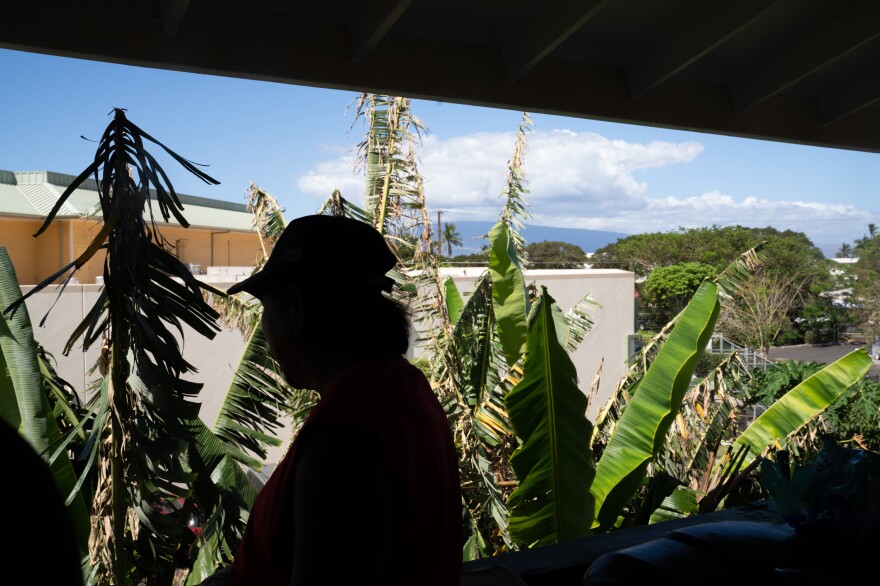
He loads gallons of water into his car and drives three miles to his house to clean and to water his banana, papaya and avocado trees in the backyard and the potted plants around his property.
He also feeds his animals. His chickens and dogs, he says, are keeping guard. The dogs bark protectively and the chickens chase each other pecking loudly.
When friends told Andres his house was still standing after the tragic fires, he didn't believe them. But then when he saw it for the first time, he said, "I was so happy I was jumping, you know," he paused to add, "me and my wife came in and we was crying, you know."
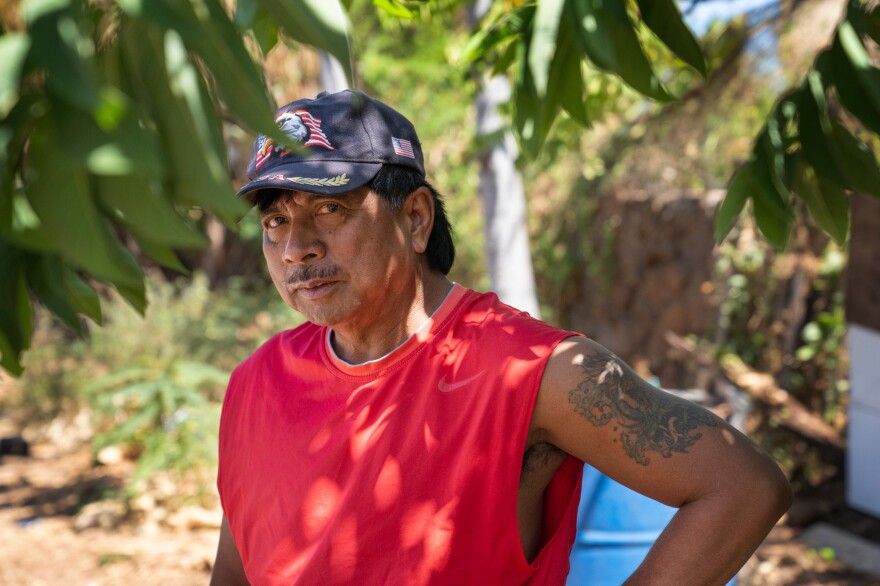
Working hard to make his home livable again
Andres has already received some money from his home insurance to cover his roof repairs, he says. He's planning to do much of the work himself; he built several additions since he bought the property it in 1990.
"I did mostly all the job, I hired some friends," he says, "paid a little bit, give them food, drinks, talk story, they like coming to help me."
Talk story: It's how Hawaiians connect by chit-chatting, hanging out or even rekindling old times.
Andres bought shingles. He's already taken a ladder to the roof and patched it up. "It's hard to find a contractor and supplies are limited here right now," he says. He's put up wood planks to support the fruit trees that keeled over during the fire to help them recover.
He said he's in better shape than others — and he isn't seeking more help right now, "I don't want to feel greedy."

Every day, there's a new layer of ash on the cabinets in the house, on the pots in the outdoor kitchen. Every day, he works to sweep it away. "It's hard, though, you don't know where to start." He's not giving up, he said.
"I like my place, you know, I don't want to sell it, you know," he said looking around his living room, "and where are we going to go? I got big family, you know."
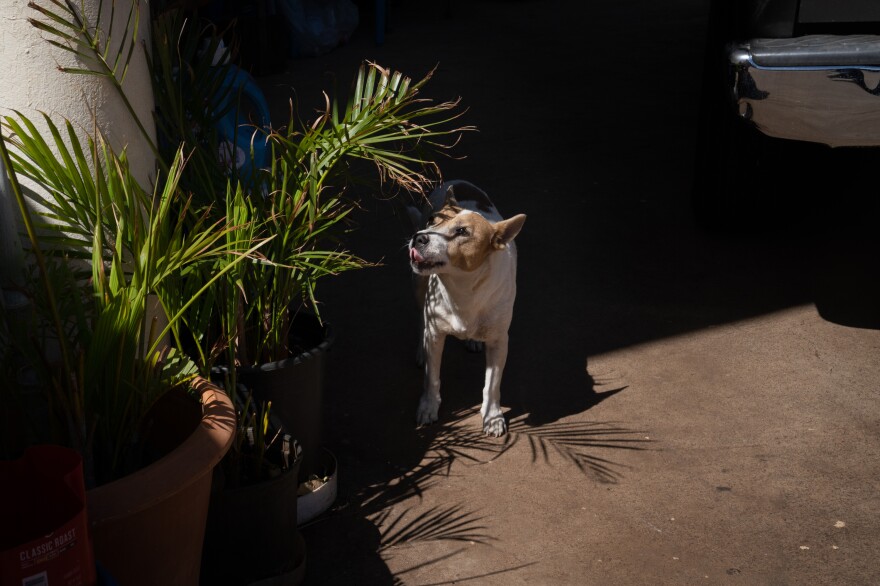
A home built over three decades
Wearing a hat with an American flag on the side, Andres explains how he grew this from three bedrooms to a compound with a cottage and different wings. His three children, three grandchildren and their pets have all lived here over the past three decades. Often other family members stay at the home for extended periods, as well.
Andres proudly gives a tour of his home. "This is the playroom for my grandkids," he says. It's the first room as one enters the house. The floor is covered with toys and children's books — everything left out of place as the family evacuated in a haste the day the fire burned.
"Every day, you should see my family, my neighbor always crowded in my place." Andres shares memories of hosting karaoke parties and New Year's celebrations at his home. "We put tables out in the driveway and everybody dancing outside," he says. His house sits in a cul-de-sac, away from the street: "Everybody can yell, my grandkids scream and nobody bothered you know," he reminisced.
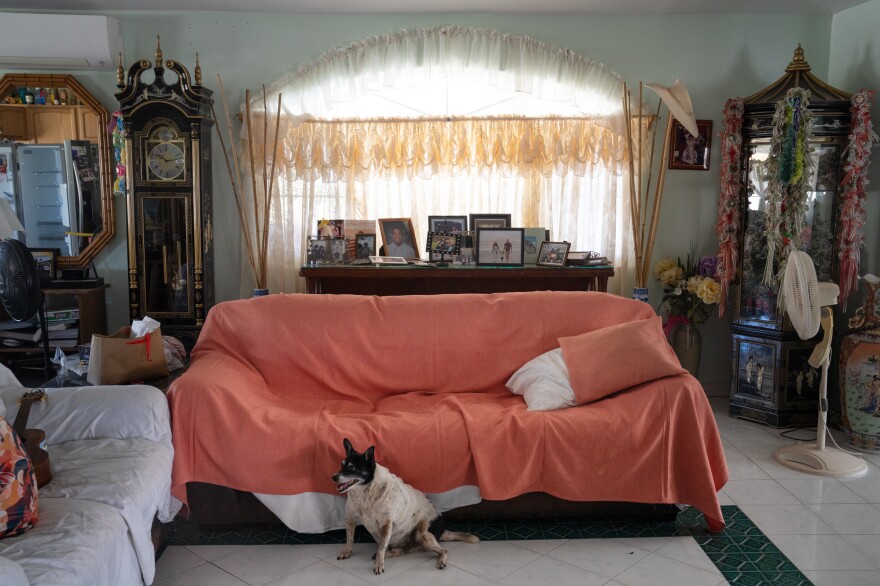
Andres and his mother came to the U.S. from the Philippines when he was 17. "Mom wanted to come to Hawaii because it's tropical like the Philippines."
Going back to the Philippines, he feels, is not an option. "My kids were born and raised in Lahaina, my family is here," he adds. "This is home." He and his wife are American citizens.
Contending with uncertainty even as their house is standing
Now, the whole family is scattered around Maui — mostly sheltered in hotels. Andres and his wife are sleeping at the Sheraton up the road. His wife works there as a seamstress. All they need to come back, he says, is running water.
Andre's daughter, Debbie Arellano, disagrees.
"I just wish they wouldn't go every day," says Arellano with a sigh, "but I know they have to. And I know they're just trying to clean, should they get the boot at the Sheraton, and they have to move home, you know?"

Arellano, her husband and 18-month old son are sheltering at a hotel. She's a counselor at Lahainaluna High School in Lahaina and has been on administrative leave since the fire, though the district has called school staff back to begin planning the return to classes. Her husband works as a bellman and valet at a hotel.
She hopes her parents won't eat the vegetables and fruits in the garden or the chickens pecking in the yard. She doesn't think the air is safe, and the food may be contaminated.
"I worry about them breathing stuff in and then getting cancer down the road," she says. "That's what I really worry about."
Officials have warned about the air quality.
Arellano remembers the day the fire broke vividly. "I could see black smoke first, then the fires." She and her baby got in the car and evacuated only to be trapped in traffic in downtown Lahaina, she says.

Before the fires, Arellano lived at her dad's property, too — in a small studio with her family.
"I'm living out of tote bags. I'm living day by day and I haven't been able to bring myself to unpack, because I don't know if we're leaving," she says. Already her family has moved hotels a few times. She's been notified of an imminent move yet again.
"They want to open to the timeshare owners and for tourism," she says, referring to hotel management at the place where her family's staying, "so they relocated us to a less attractive sister property. But it's fine." She's grateful to have a kitchen where she can cook healthy meals for her family.
On this day she's at a family resource center attending a pre-scheduled meeting with the Red Cross.
Arellano says the way many families live together in Hawaii and the Hawaiian way of life is hard to explain on the FEMA forms she's been filling out.
"It's multigenerational. It's multiple families, at least two different units, if not four and some maybe unpermitted structures," she says. "That's the only way we could live in Hawaii. That's the only way we can live in Lahaina."
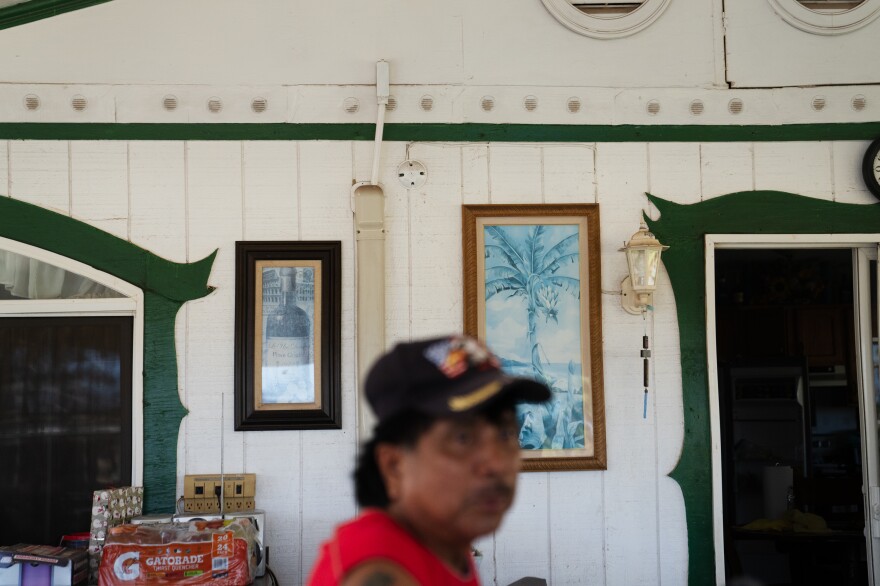
Property is expensive here, she says, and childcare is not affordable – families in Lahaina rely on each other and it helps to live in a multiple household compound where there's always someone to watch kids and make meals.
Wildfires: Lahaina's breaking point
When her father bought the house in Lahaina 30 years ago, it was surrounded by fields of sugarcane and the family could see the ocean from the second-floor deck. Over time, it's turned into strip malls and housing subdivisions.
Now, it's going to change yet again.
"Lahaina's been in trouble for a long time, and so — I guess this is the breaking point," says Arellano.
Even before the fires, she recalls, people were selling their homes for cash. Mansions were going up nearby. She's concerned this tragedy will accelerate the trend. Her hope is to be able to raise her child here.
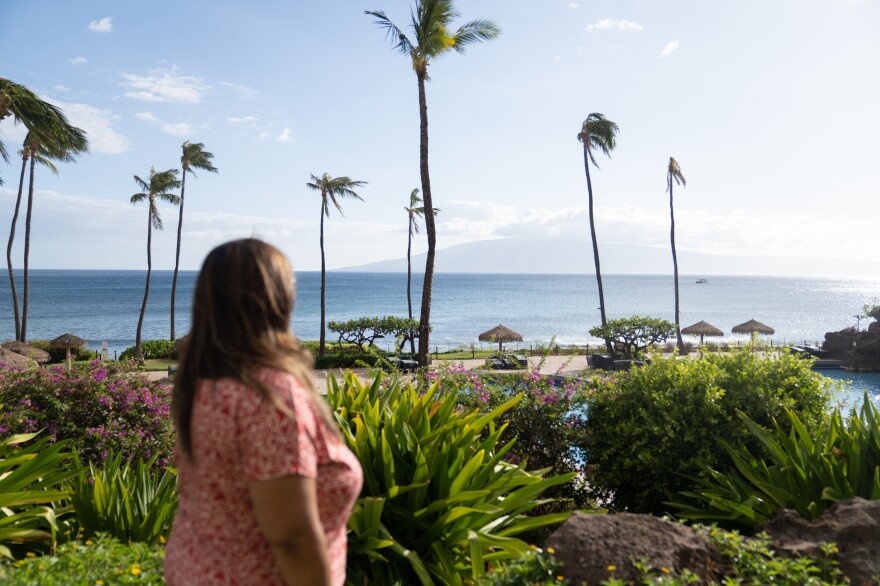
"I would like to contribute to Lahaina getting stronger. Going back to what it is — what it was," she corrects herself, "when I was growing up." Her eyes well with tears.
But the Lahaina she grew up with is not coming back anytime soon. That's something she realized this week, when she was advised by a federal agency to start looking for a long-term rental.
Back in the kitchen of her family's home, her dad points to a cabinet door covered with pictures: "This is my grandkids, this is my son with my granddaughter, my niece over there — her apartment burned down too, yeah," he said.
Between them, this extended family counts eight houses destroyed by the fire. But Danilo Andres is determined that his home will not be among those lost. His first goal is to bring back his house. Then maybe someday, he says, his community will return.
Copyright 2023 NPR. To see more, visit https://www.npr.org.




